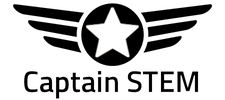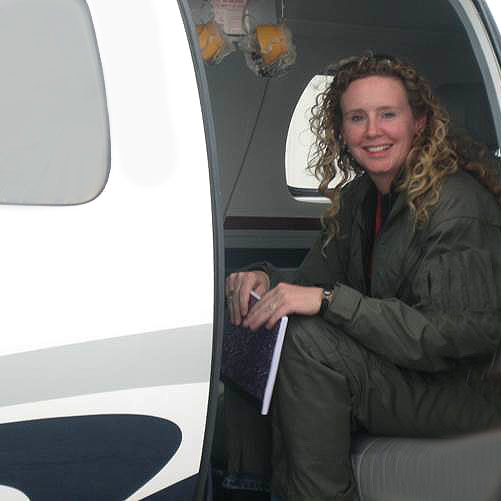Kathryn Ray, Mechanical Engineer, Program and Project Manager
Got a question for Kathryn or another STEM professional? Ask away on our Captain STEM Forum >
|
Kathryn Ray is a Mechanical Engineer who works a Program/Project Manager in the aerospace industry. A true Renaissance Woman, she also serves as a mentor and facilitator, as well as a farmer and artist who raises Tibetan Mastiffs.
|
Education
|
BS in Mechanical Engineering
|
How did you end up in this role?
|
At 11 years old I decided that college was a means to gain control over my life. I had no idea what I would study or how college would happen for me, but I knew I would go. My parents and school did not prepare me for college. In those days, the options presented to me were teacher, administrative assistant (they were called Secretaries then) and mother. I knew I did not want to be a parent, and while I have the utmost respect for teachers, I thought there had to be something for me beyond the formal classroom. I was good at math, and most of the jobs I saw were very service-oriented. I didn't know what kind of jobs people who were good at math did, beyond accounting.
Along the way I did have some ideas for jobs like priest, doctor, veterinarian, lawyer, astronaut, actor, and singer. For the most part I didn't know anyone who did these jobs. Certainly not anyone I felt I could talk to about them! All of these slowly got crossed off my list because...
... And thus I was left with accountant. Because I did not get good enough grades to receive scholarships and I was paying for school myself, I started at the local Community College. My mom suggested I take a "Career Development" class first. One of the counselors supporting this class suggested I might get bored being an accountant and asked if I had considered engineering. I told him that I didn't think I would enjoy driving a train for a career.... he then told me there are a lot of different kinds of engineers and gave me some information to get started researching engineering careers. I then set out to major in Aerospace Engineering. Soon after, what was Martin Marietta laid off about 7000 aerospace engineers in the Denver Area, where I lived. So I revised my major to Mechanical Engineering, thinking it would be more stable. I also spent a short time considering Geology, because it would allow me to be outside, but came back to Mechanical Engineering prior to graduation. It took 8 years for me to complete my BS in Mechanical Engineering. Upon graduation, I was very interested in heat transfer, aerodynamics, and the union between engineering and biology, especially prosthetics. At the time, Johns Hopkins was the only school (I was aware of) doing any work in prosthetics. The internet was brand new, so my access to information was the local library. Lack of funding, less than stellar grades, and the fear of moving so far away to the East Coast kept me from applying to the Johns Hopkins program. Instead, I enrolled in the local Graduate School to focus on fluids and heat transfer. But due to lack of funding and an improved job market, I left a year later to work as a Manufacturing Engineer in the Space Program. It’s impossible to know if I made the right choice. I’ve had an interesting career in space and technology, but the prosthetics space is doing well now, especially with the advent of 3D printing. I think if you feel strongly about something, you should try to pursue it. Don’t let fear stop you. "Programs like Captain STEM are important. Representation matters.
|
A day in the life
|
As a Program or Project Manager no one typically reports to me, but I am responsible for the success of a Project. I figure out what things need to be accomplished in order to complete a project. Part of this is determining priorities, dependencies, and durations. There is also a lot of reporting, statusing, and negotiating required for a project to be successful. Building trust and respect with the team, suppliers, and customers is essential.
|
What I struggled with as a student
|
Funding was always my biggest challenge. I worked nearly full-time during college and left graduate school because I needed to make money.
The only class that I was really good at in High School was math, and as a girl, this was considered "unusual" at the time. I’m also an introvert, which again was considered "unusual" for girls at the time, and definitely was not valued by society. So being a poor, female, introvert, who was good at math, I was often treated as "weird" by my peers… and the adults didn’t seem interested or concerned about where I was going or how I might get there. This is why I think programs like Captain STEM are so important. Representation matters. Being able to see yourself in a future situation is essential to figuring out how to get there. |
Advice for aspiring students
|
I was not good at reading retention or writing in school, so I took extra writing classes in High School and College. While most students I knew were more focused on grade point average and weekend parties, I was more interested in learning and growing. This means I took classes that were challenging for me and I did not get the best grades. Unfortunately grades are what get you scholarships and top-tier schools, so think about what matters more to you. Is it personal development, growth, making a difference?
Networking and understanding the politics of the company/industry are important, and that can be difficult for me. I am an introvert who does not smoke or drink. Smoking at bars is less common now, but most networking events still involve alcohol, and I don't find it "fun" to talk about frivolous things with unknown people. I would much rather collaborate with one or two people to do good things in the world. With the growth of Social Media, I think it’s easier to find like-minded people. I’ve also found that it’s easier to find like-minded people in the things you do for fun or outside of the Day Job. For example, I have found wonderful mentors and references for my professional endeavors while doing things related to our farm, dogs, or shearing alpaca. Not everyone is motivated by the same thing. People are often motivated by position, money, or power, while some are more interested in stability or benefits such as health insurance. Still others are most interested in learning, growing, and making a difference. It’s important to understand how and why individuals are motivated. Also if we understand how or why we are motivated, I think it becomes easier to interview employers and find a better fit. Critical thinking is essential. Some people will lie to you or purposefully not give you the whole story. Watch people's actions, decisions, and choices… especially who they hire or promote (or don’t). This will tell you a lot more than what they say. Pay attention to the language being used. Make sure your sources are reliable. There's a saying: “There are two types of Engineers.... those that have been laid off and those that are going to be laid off.” I have been laid off 10 times in a 25-year career.... so far. This is hard when you have student loans that take 10 years to pay off. So do what you can to earn as many scholarships as possible. Since I did not have a lot of support at home and I worked through-out high school and college just to make ends meet, finding time and help to complete scholarship applications was difficult for me. I think this is generally better now, but I would recommend asking a teacher, coach, or counselor that you trust and respect for help… it’s their job to help you succeed in your future goals. I didn’t know this… and if you don’t ask, they may not realize that you need or want help. Make a point to learn about money.... investing, saving, living below your means. Unemployment Insurance only goes so far. It's hard to go back to a technical job after you've been managing projects or people, so when you are given the opportunity to be "promoted," be certain this is the path you wish to take. |
Additional thoughts
|
Being an engineer has allowed me to work on cutting edge technology and transformational projects in a variety of industries. You don't have to choose one career for the rest of your life.
As a kid, I never knew how to answer questions like: What's your favorite color? What do you want to be when you grow up? Being unable to answer these questions made me feel stupid and less-valuable, even though they felt like illogical questions. For example, all colors are beautiful, so I like them all... it's impossible to have a favorite. I think the adults asking these kinds of questions were either just making small talk or trying to get ideas for birthday gifts. Now that I’m an adult, I try to ask more open-ended questions, but I realize I’m probably asking equally illogical questions of the young people in my life. You don't have to be only one thing at a time, and it's important to remember that your Day Job is not who you are. Outside of my Day Job, I raise alpaca and Tibetan Mastiffs with my husband. I shear the alpaca myself, and I spin and knit with the fiber from our animals. I have won awards with my spinning and knitting projects. I am an aspiring weaver. I also compete in Conformation events with my dogs, and mentor to new owners of Livestock Guardian Dogs and Tibetan Mastiffs. I think it’s important to always be learning, growing, and paying it forward. At some point you will have enough experience to help others learn and grow too. I am now a mentor to younger and less-experienced engineers. I am also a former Adaptive Ski Instructor. |


